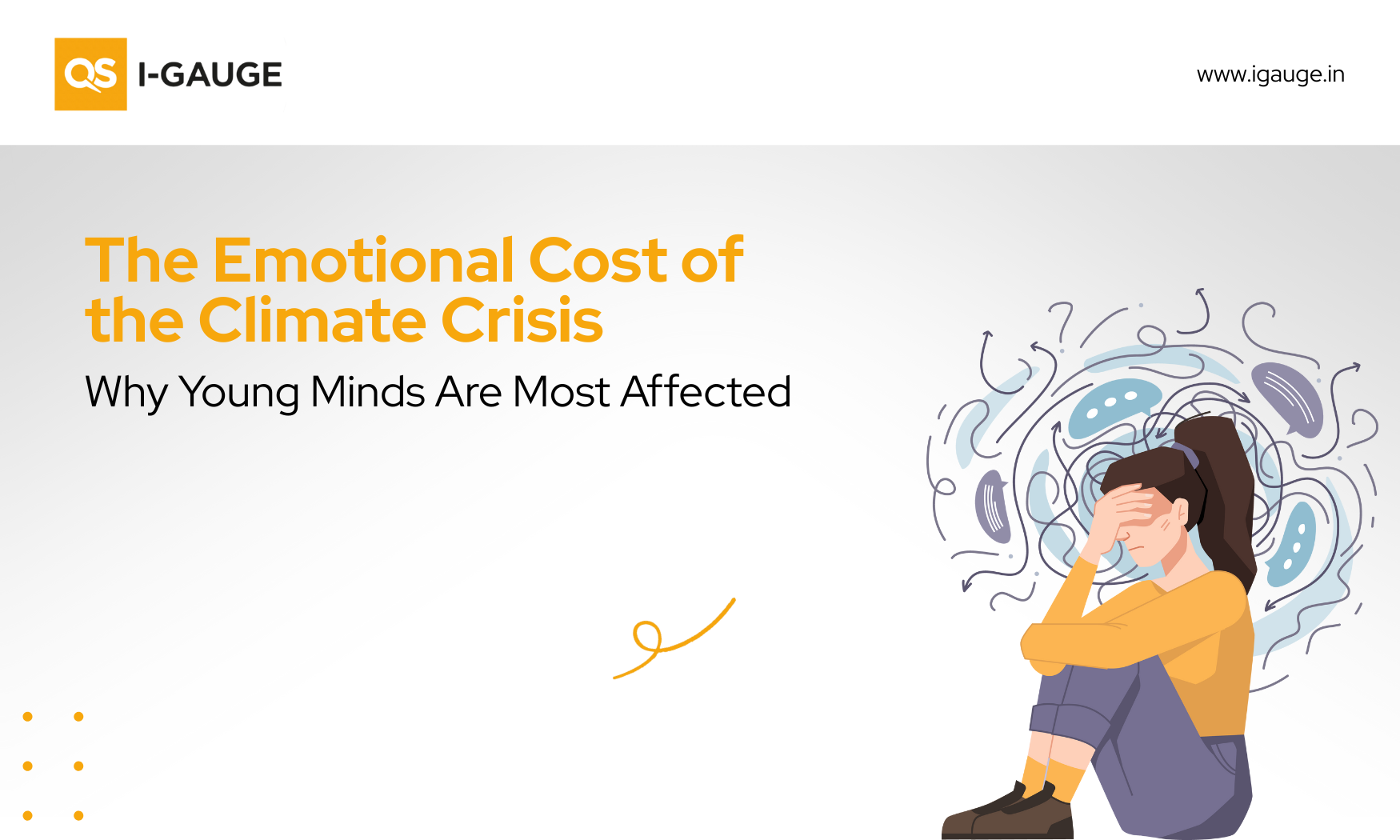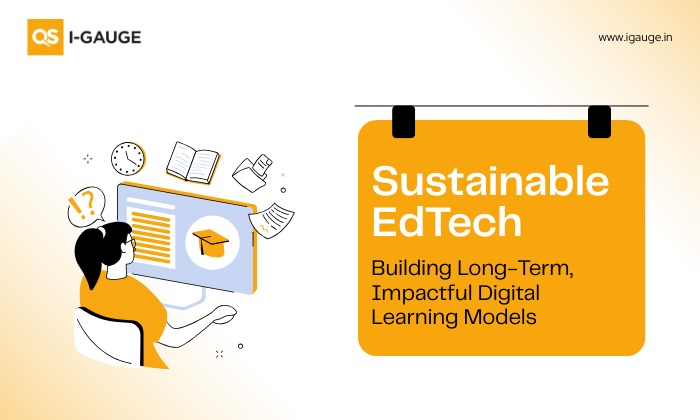
Climate change is real. It is happening right now, it is the most urgent threat facing our entire species and we need to work collectively together and stop procrastinating.
- Leonardo Di Caprio, Actor & Environmentalist
Climate change has become the greatest threat to human existence. As parents, educators, citizens, and fellow human beings, we have a shared responsibility.
Anthony Leiserowitz, Human Geographer at Yale University, reminds us that the single best antidote for climate anxiety is action!
What is climate change, and what is causing the anxiety?
Climate change, in simple terms, is the way the Earth is getting warmer, accompanied by unpredictable weather conditions, mainly resulting from human activities such as burning fossil fuels, which release greenhouse gases like carbon dioxide into the atmosphere. The gases in the atmosphere trap solar heat, which leads to planetary warming that scientists term ‘global warming’. This is resulting in increasing sea levels, melting glaciers, frequent extreme weather events, altered wildlife, and ecosystem distributions.
Climate anxiety, also termed eco-anxiety, refers to chronic fear, stress, or anxiety about the consequences of climate change and environmental destruction on the planet, life, and future generations. People, especially youngsters and Gen Zs, now experience climate crisis-related emotional distress because they intensely worry about climate change and its effects on their mental health.
Why climate change feels personal for younger people –
- Younger people understand that they will directly experience the future impact of climate change, which makes them concerned about their health, security, and their present-day existence.
- Due to continuous exposure to world news and social media conversations, the public now experiences climate threats in real-time and realise the threats are closer than before! Also, they are more prone to witnessing extreme weather conditions and disasters that can harm their daily routines and even their education at times.
- Young people believe that older generations and decision-makers do not work sufficiently to solve the climate crisis, which creates feelings of betrayal, frustration, and builds a sense of injustice between different age groups.
- Research shows that these emotions lead to feelings of sadness, fear, helplessness, and hopelessness among young people who fear their future will be frightening and question their ability to have children in such an unstable world.
- The duty to protect nature for the current needs and for future generations makes it an added emotional burden to youngsters.
Some facts and insights
Research conducted in 2025 revealed that 60% of the global youth population showed intense concern about climate change, while 45% reported that climate anxiety interferes with their daily activities and mental health.
About 90% of Indian youth have reported to experiencing eco-anxiety that impacts their daily lives, education, and mental wellness.
A 2024 survey with people aged 14-25 showed that students felt climate change directly affected their lifestyle, resulted in school closures, and reduced outdoor activities because of extreme weather conditions.
About 88% of Indian youth noticed visible changes in the environment in the last 7 years, such as intense heat waves, unpredictable rainfall, and other extreme weather conditions, and about 50% reported having stress and anxiety due to such worsening conditions.
Another study showed that young Indians feel climate anxiety has led to reduced productivity, emotional distress, and a sinking feeling that there can’t be an escape from this!
A significant number of Indian youth feels that the education on climate change is insufficient, and feel the need for a more practical and comprehensive education.
Reports also show that people who have limited economic resources and those residing in areas prone to climate change tend to develop more severe climate anxiety as they face financial difficulties and direct environmental risks.
So, what can be done?
Just like other forms of anxiety, climate anxiety can be managed through various methods.
- Education, along with coping strategies such as emotional wellness, climate literacy, and strategies to deal with such fears, can be integrated into the curriculum. Schools and colleges should use real-world problems and solution-driven projects, such as campus drives for recycling, energy-saving, planting trees, etc.
- Educational institutions should include approaches for emotional regulation and resilience through methods like mindfulness, relaxation, and self-care techniques. Providing mental health counselling for students can also help them cope with changes.
- Students can benefit from having open conversations with family and teachers about their feelings and concerns. Normalising such emotions and feeling a sense of validation ensures they feel safe and start getting hopeful.
- While it is important to be informed about world news and things around us, it is equally important to reduce exposure to distressing news, as studies show the human mind is not wired to consume a barrage of messages, especially disturbing content. So, limiting social media usage and not exposing oneself to such news can help one stay away from anxiety, even if briefly.
- Taking part in climate-positive initiatives can help restore a sense of control. Working with local communities on sustainability initiatives can make one involved in the process of change and motivate youngsters.
Conclusion
Let’s wake up before it is too late! Our younger generation needs an environment - physically and mentally – to build a better tomorrow. Only through a collective action towards a positive change can this be made possible.
“We are the first generation to feel the effect of climate change and the last generation who can do something about it.”
- Barack Obama, Former US President


 (1).png)
